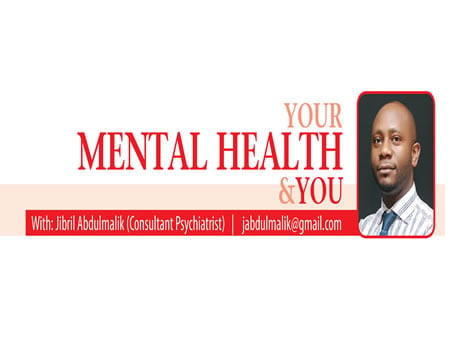Case 1: Ayo is an eight years old boy who was diagnosed with autism at the age of three years. He also has intellectual disability (very low IQ) and is very restless and always on the move. He is the first child of his parents, who are quarrelling frequently in recent times.
They had been to several hospitals and done many tests including CT scan of the brain which cost about N50,000. His father had to borrow N40,000 as his salary had not been paid by the state government for the past five months. He became increasingly frustrated and irritable and started harassing his wife. “I don’t know what you did during the pregnancy of this boy. We have never had this type of sickness in my family so I know it must have been from your side,” he concluded.
Ayo’s mum would just silently weep as she ran after her son, who was busy banging his head against the wall. Ayo’s father soon started keeping late nights and drinking heavily; which soon escalated rapidly into physical assault of his wife, as he blamed her for not being able to give birth to a normal child.
Over the years, they gradually drifted further and further apart until he eventually sent them packing f. He remarried shortly thereafter. Ayo’s mother was a civil servant with a very understanding boss at the State Secretariat. However, other staff members were beginning to grumble about her absences and frequent permissions to go to clinic with her son. She also frequently brought him to the office as she had no one to look after him at home.
Most schools had refused to take him in. The few schools for children with disability were in a terrible state and she could not bring herself to drop him at any of those places. What can she do? She was at her wits end, and to her shame, she caught herself wishing he would just die and free her from this heavy yoke. She wept bitterly and tried to be effusive in her care of Ayo subsequently, to atone for the shame of having such thoughts.
Though she was just 32 years old, re-marriage was out of the question for her. In any case, who would marry a divorcee with a child who had mental disabilities? And considering how much humiliation and abuse she endured from Ayo’s father, she would be better off alone. “At least that way, I would have peace of mind”, she surmised.
Discussion
Child and adolescent mental health conditions are common and affect one in every five children. They may range from disorders that only become apparent in the course of expected normal development (Developmental Disorders) such as Autism; intellectual disability; and extending to behavioural disorders such as attention deficit hyperactivity disorder (ADHD), and conduct disorders. Other types, especially during adolescence include drug use and abuse, depression, anxiety and psychotic disorders.
Some of these disorders are easily treatable and the affected children or adolescents will recover and return to normal functioning, with examples including anxiety, depression or psychotic illnesses. However, some other conditions such as intellectual disability and autism are lifelong conditions that place a huge caregiving burden on the affected families.
They have to learn to cope with the reality of the situation, provide care and support as best as they can for the child, while also not neglecting their individual emotional needs for support and motivation. It is a common experience for family members to become emotionally exhausted over time and become irritable towards each other.
Relationships easily become strained to breaking point, and they may start trading accusations and counter-accusations. Unfortunately, in some instances, the mother usually suffers a guilt trip and imagines that it is her fault that something went wrong with her child – perhaps she did something wrong during the pregnancy or while nursing the baby. Thus, some mothers of children with mental disabilities may develop clinical depression and require treatment themselves.
Conclusion
Providing care for a child who requires a lot of attention and support is a task that often stretches one’s endurance beyond belief. It helps when every member of the family shows understanding, and shares the responsibility of providing care as well as encouraging one other.
Public awareness campaigns are still very inadequate to counter the associated stigma and discrimination. Good schools and supportive teachers, as well as effective social services are other ingredients for a good outcome.
Lastly, improved access to quality antenatal care services and supervised deliveries by competent staff would significantly reduce the occurrence of several child and adolescent mental health conditions.
YOU SHOULD NOT MISS THESE HEADLINES FROM NIGERIAN TRIBUNE
ICYMI: CBN Lists Business Activities Eligible For N75bn Youth Investment Fund
THE Central Bank of Nigeria (CBN) has revealed main business activities and sectors in the Nigerian economy that are eligible to access its N75 billion Youth Investment Fund…
#EndSARS: Fr Mbaka Asks Buhari, Past Leaders To Apologise To Nigerians
Controversial Catholic priest and Spiritual Director of Adoration Ministry, Enugu, Nigeria, (AMEN), Rev Fr Ejike Mbaka, has taken a swipe at President Muhammadu Buhari and past leaders of the country demanding that the President should apologize to the country, especially the youth, on behalf of himself and his predecessors, for causing Nigerians so much pain…






